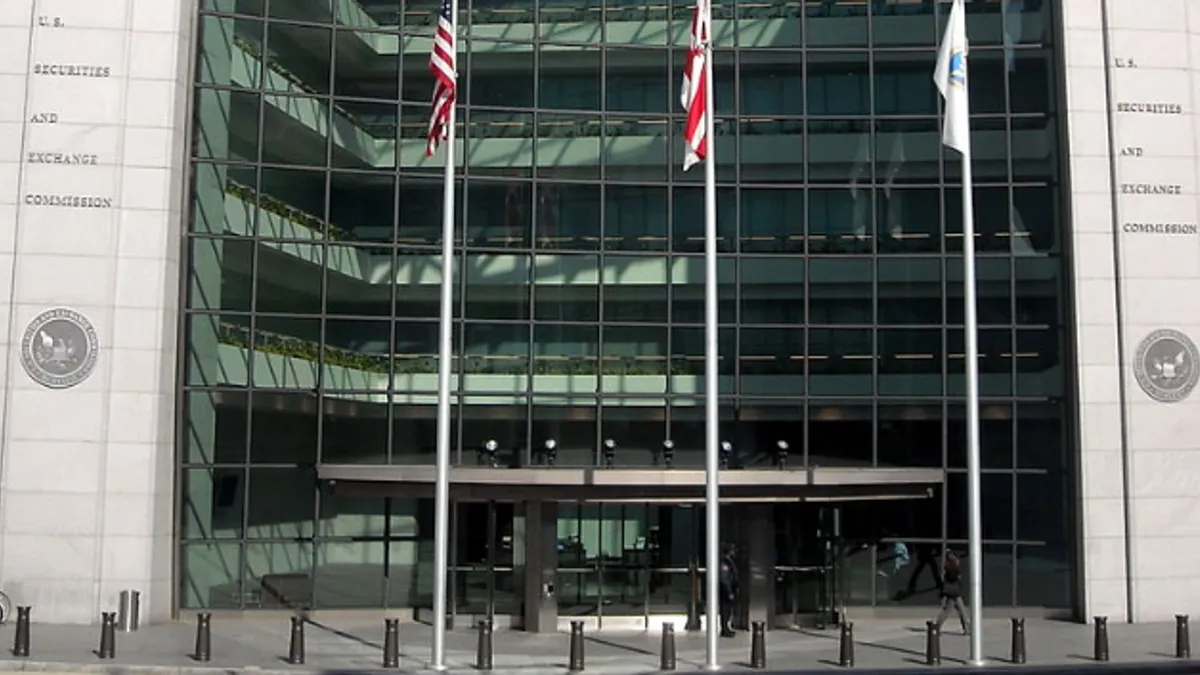Dive Brief:
- Renee Jones, a professor at Boston College Law School, has been appointed to lead the Securities and Exchange Commission's corporation finance division and its rulemaking for special purpose acquisition companies (SPACs), climate change disclosure, cyber risk and other hot-button issues.
-
Jones, who criticized weak corporate governance of private companies valued at more than $1 billion in a 2017 paper, has represented public and private companies on corporate and securities matters at Hill & Barlow. At Boston College, she teaches courses on financial regulation, startup company governance and securities regulation.
-
“Renee brings deep expertise in corporate governance and securities law” to the corporation finance division, SEC Chair Gary Gensler said in a statement.
Dive Insight:
Since taking office as SEC head in April, Gensler has affirmed a robust set of goals for regulation and investor protections on issues ranging from crypto assets, fintech and stock trading by company leadership to stock buybacks, short sale disclosure and mandated electronic filings.
As head of the corporation finance division, Jones will lead SEC rulemaking on some of those issues, and other matters described by the agency on June 11, including proxy voting advice, market transparency, corporate board diversity and SPACs.
Gensler, while warning of potential fraud, said last month that the SEC will “closely look” at how SPACs raise cash from the public and merge with target companies.
The SEC this year has received 700 filings from such shell companies seeking to go public, and 300 have been completed, Gensler said in congressional testimony, calling the number of filings an “unprecedented surge.”
The SEC slowed the market for SPACs earlier this year when staff accountants released a memo saying warrants attached to SPAC shares should be treated as liabilities rather than as equity. The agency approved only 13 SPACs in April compared with 109 in March.
A SPAC — or what Gensler called a “blank-check” initial public offering — offers private companies a quicker, cheaper alternative to traditional IPOs. A SPAC raises money by selling shares, which it lists on a stock exchange. It then merges with a private company.
Weak governance critic
In her 2017 paper “The Unicorn Governance Trap”, Jones said weak corporate governance and regulation of private companies valued at more than $1 billion exposed investors to misconduct or mismanagement by the companies’ founders.
“Unicorn governance structures depart dramatically from that of the traditional venture-backed start-ups,” she said, noting founders, not investors, maintain control over the board.
“Investors and policymakers must take steps to address the problem of unaccountable unicorns,” Jones said.












